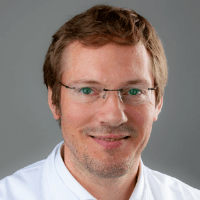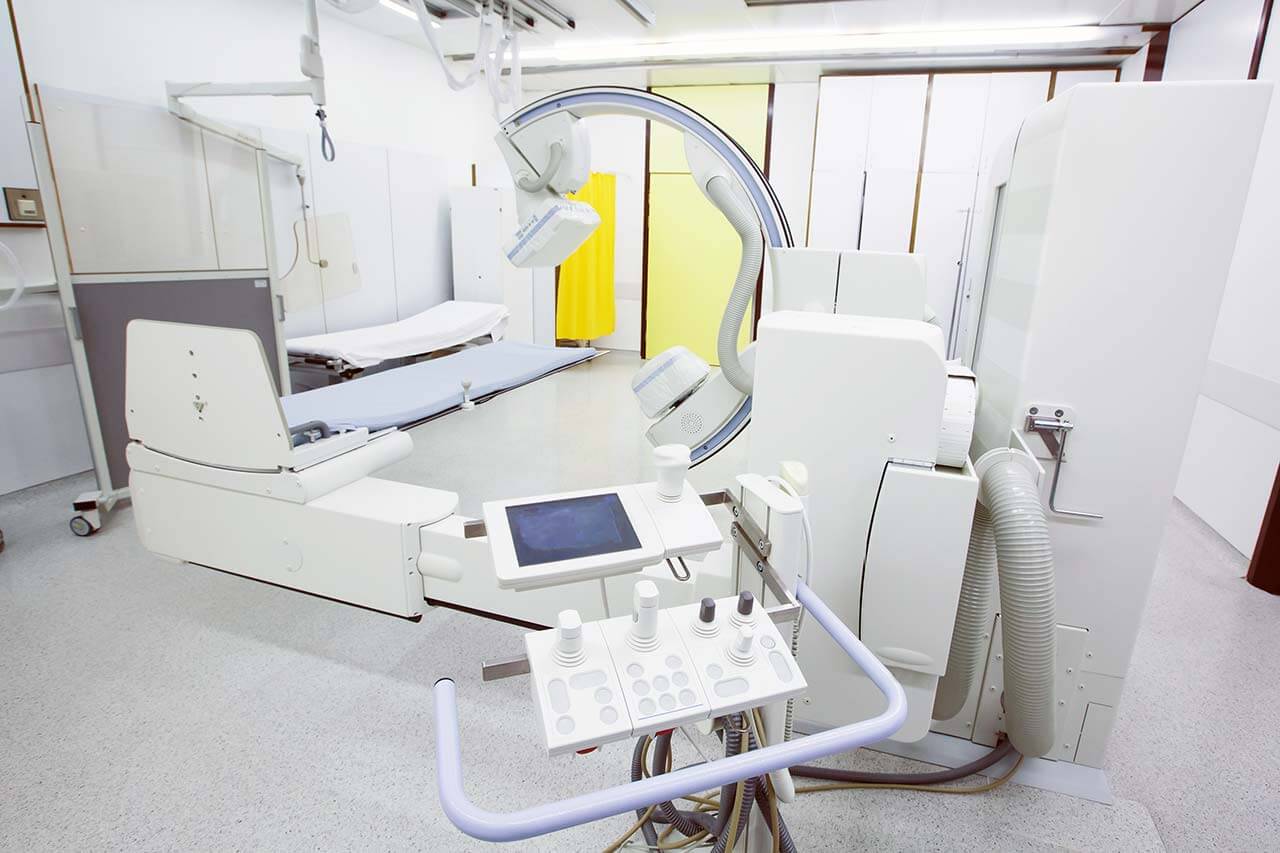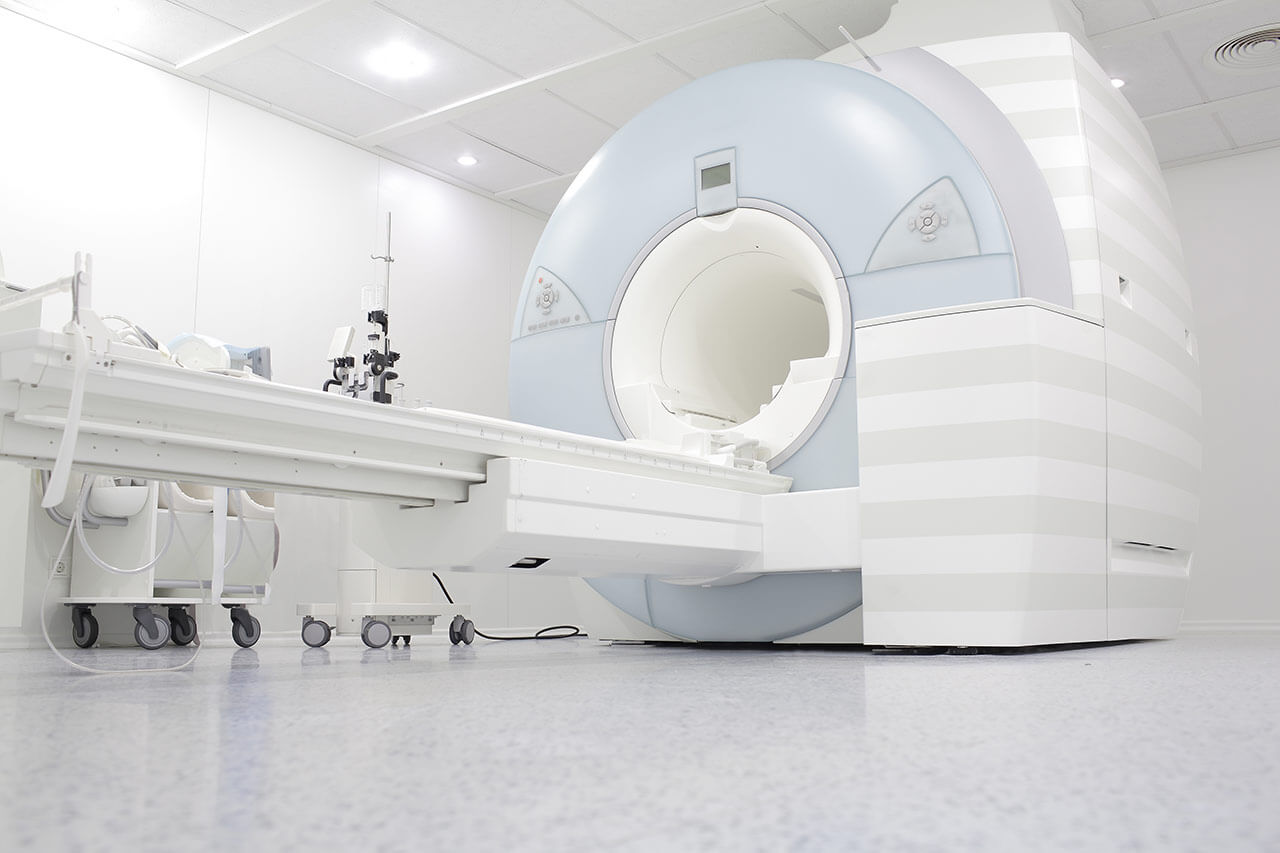
The program includes:
- Initial presentation in the clinic
- clinical history taking
- physical examination
- neurological examination:
- somatosensory evoked potentials
- reflexes
- muscle strength
- muscle tone
- senses of touch and sight
- coordination
- balance
- laboratory tests:
- complete blood count
- biochemical analysis of blood
- enzyme tests
- inflammation indicators
- BSG
- creatine kinase (CK)
- immunoelectrophoresis
- vitamin B12, vitamin D
- thyroid parameters
- parathormone
- genetic testing for bi-allelic deletion
of exon 7 of the SMN1 gene
- electromyography (EMG)
- brain and neck CT/ MRI
- muscle biopsy if indicated
- X-ray of the chest
- CSF puncture with nervous water examination
- cerebrovascular doppler ultrasound
- consultation of related specialists
- symptomatic specific treatment (the cost of Nusinersen is not included)
- the cost of essential medicines and materials
- nursing services
- control examinations
- full hospital accommodation
- developing of further guidance
Required documents
- Medical records
- Electromyography (if available)
- Muscle biopsy results (if available)
Service
You may also book:
 BookingHealth Price from:
BookingHealth Price from:
About the department
The Department of Neurology at the Hannover Medical School offers the full range of services for the diagnostics and treatment of diseases of the central and peripheral nervous system. The treatment of strokes, infectious diseases of the nervous system, brain tumors, herniated discs, compression syndromes, neuromuscular diseases, chronic headaches, epilepsy, multiple sclerosis, Parkinson's disease, and amyotrophic lateral sclerosis is of particular interest to the department's neurologists. The department has 90 beds, 12 of which are intended for patients of the certified Stroke Unit. Medical care is provided by a competent team of professionals with vast clinical experience and unique knowledge in their specialization. The department provides both inpatient and outpatient treatment, as well as emergency medical care. The department is headed by Prof. Dr. med. Günter Höglinger.
One of the most common neurological diseases is a stroke. To provide the most effective treatment of this pathology, the department has an advanced Stroke Unit, which is the certified interregional Stroke Center. More than 1,200 patients with acute stroke receive medical care here every year. The Stroke Unit provides comprehensive treatment, including thrombolytic therapy, mechanical implantation of stents to restore blood supply to the affected areas of the brain (recanalization) and other therapeutic methods. It should be noted that the department demonstrates excellent results in the treatment of stroke and a high survival rate, therefore it has a good reputation both at national and international levels.
The department's neurologists quite often deal with the treatment of benign and malignant brain tumors. When brain tumors are detected, a treatment regimen is developed at an interdisciplinary tumor board, in which neurologists, neurosurgeons, neuroradiologists, radiologists, oncologists, radiation therapists and other highly qualified specialists take part. The department's doctors have at their command many modern therapeutic methods for cancer treatment, including chemotherapy, radiation therapy, treatment with immune checkpoint inhibitors, and targeted therapy. In cooperation with neurosurgeons, microsurgical and stereotactic radiosurgical interventions are performed to remove malignant brain tumors. Prior to choosing a particular treatment method, the doctors accurately study the diagnostic data (CT, MRI, PET scans) that allows them to assess the activity of the brain, the localization of the affected area of the brain, vascular changes, tumor boundaries, stage of the oncological process, tumor size, presence or absence of metastases. After completing the course of treatment, the patient must regularly undergo follow-up examinations for the prevention or early detection of recurrence.
The team of the department's neurologists is rightfully proud of the high treatment success rates in movement disorders. The specialists of the medical facility carry out diagnostics and treatment of all types of movement disorders, including idiopathic and atypical Parkinsonian disorders, tremor, chorea, dystonia and spasticity. To make an accurate diagnosis, an individually selected set of diagnostic tests is used: clinical examination, gait analysis, electrophysiological studies, genetic tests, extended laboratory diagnostics, imaging tests (MRI, FDG-PET, SPECT, etc.). The therapeutic offer in this field includes the use of an individually selected regimen of drug therapy, physiotherapy, occupational therapy. Pump therapy (apomorphine, levodopa) in Parkinson's disease is also successfully used. Deep brain stimulation for Parkinson's disease, dystonia and tremor is performed in collaboration with neurosurgeons. The therapy for spasticity is based on botulinum toxin injections and intrathecal baclofen therapy.
The department's key clinical focuses include:
- Diagnostics and treatment of cerebrovascular diseases (for example, stroke)
- Diagnostics and treatment of benign and malignant brain tumors
- Diagnostics and treatment of amyotrophic lateral sclerosis
- Diagnostics and treatment of neuromuscular diseases
- Diagnostics and treatment of neuroimmunological diseases (for example, multiple sclerosis, immune neuropathies, myasthenia gravis)
- Diagnostics and treatment of movement disorders (for example, Parkinson's disease, tremors, spasticity)
- Diagnostics and treatment of Alzheimer's disease
- Diagnostics and treatment of epilepsy
- Diagnostics and treatment of chronic headaches
- Diagnostics and treatment of diseases of the peripheral nervous system (for example, spinal disc herniation with nerve root compression, compression syndromes, polyneuropathies)
- Diagnostics and treatment of other pathologies of the nervous system
Curriculum vitae
Academic Degrees
- 2000 - 2007 Habilitation, University of Marburg, Germany.
- 1992 - 2000 Doctor of Medicine, Universities of Regensburg, Wuerzburg and Marburg, Germany.
Major Positions
- Since 2017 Head of the Interdisciplinary Section for Clinical Trials at the German Center for Neurodegenerative Diseases (DZNE) in Munich.
- Since 2011 Head of the Section on Neurodegeneration in Translational Medicine, Technical University of Munich and the German Center for Neurodegenerative Diseases (DZNE) in Munich.
- Since 2011 Senior Consultant, Department of Neurology, University Hospital Marburg.
- 2011 Deputy Head, Department of Neurology, University Hospital Marburg.
- 2009 - 2010 Managing Senior Consultant, Department of Neurology, University Hospital Marburg.
- Head of the Department of Neurology at the Hannover Medical School.
Memberships in Professional Societies
- Since 2017 President of the German Parkinson Society (DPG).
- Since 2015 Member of SABs of AbbVie, Asceneuron, BMS, Roche, Sanofi, UCB.
- Since 2012 Head of the Research Group of the International Parkinson and Movement Disorder Society.
Awards and Honors
- 2017 Dingebauer Prize for Research in Atypical Parkinson Syndromes, German Society of Neurology (DGN).
- 2011 - 2016 Professor Heisenberg Prize, German Research Foundation (DFG).
- 2011 Poster Award, German Association for Atypical Parkinson's Disease.
- 2010 Best Doctoral Thesis in Medicine, Medical Association of Hesse.
- 2010 Best Doctoral Thesis in Biomedicine, Philipps University of Marburg.
- 2009 First Prize "Innovative Therapeutic Strategies for Neurodegenerative Diseases" of Dr. Walter and Louise Freundlich Foundation.
- 2008 First Thesis Prize, Neurology Center, Philipps University of Marburg.
- 2007 Award for Excellence in Basic Science, Movement Disorder Society.
- 2005 Parkinson's Disease Research Award, German Parkinson's Disease Association.
- 2005 Encouragement Prize, German Parkinson's Disease Association.
- 2003 Research Grant, Fondation Récherche Médicale, Paris.
- 2003 Research Prize, National Parkinson's Disease Foundation, Miami.
- 2003 Research Prize, Parkinson's Disease Society, Baltimore.
- 2001 - 2002 Research Grant, German Research Foundation.
- 1994 - 1998 University Scholarship, Hanns Seidel Foundation.
Photo of the doctor: (c) Medizinische Hochschule Hannover (MHH)
About hospital
The Hannover Medical School has the status of a leading German medical facility. The advanced medical technologies, highly qualified specialists, as well as productive research activities form a solid basis for top-class medical service of the world standard. The hospital is proud of its outstanding achievements in the treatment of cancer, diseases of the lung, heart, kidney, liver and metabolic disorders, as well as surgical diseases.
The medical facility diagnoses and treats more than 63,000 inpatients and about 470,000 outpatients annally. These indicators are growing steadily, which indicates the reputability and prestige of the hospital in the European medical arena.
For decades, the hospital has been a pioneer in transplantation medicine and is one of the leading centers of this specialization in the world. It performs about 400 transplantations of solid organs annually. Also, the hospital has performed over 130 bone marrow transplantations. In addition, the hospital ranks among the world leaders in cochlear implantation for the treatment of hearing loss.
Much attention is paid to interdisciplinary cooperation. Since 2016, the hospital has the largest certified Cancer Center in the Federal State of Lower Saxony, which provides comprehensive, multidisciplinary medical care in accordance with the standardized protocols of cancer societies.
The specialists of the hospital offer patients not only modern treatment of the highest quality, but also attentive care, sympathetic attitude to the patient's problems and understanding of his individual needs. Thus, the patient can be sure that his health is in the safe hands of highly qualified doctors.
Photo: (c) depositphotos
Accommodation in hospital
Patients rooms
The patients of the Hannover Medical School live in comfortable and cozy rooms. Each patent room has an ensuite bathroom with shower and toilet. A standard patient room includes an automatically adjustable bed with an orthopedic mattress, a bedside table, a wardrobe, a TV and a telephone. You can use TV, telephone and Internet using a special chip card, which can be purchased at self-service terminals or ordered at the service counter. The hospital allows the patients to use mobile phones, with the exception of intensive care units, some departments and diagnostic rooms.
If desired, the patient can stay in an enhanced-comfort room. Such rooms are distinguished by a more sophisticated design, and are additionally equipped with upholstered furniture, a safe for storing valuables and a mini fridge.
Meals and Menus
The patient and the accompanying person are offered delicious and balanced three meals a day. Breakfast and dinner are served buffet style and lunch can be chosen from three set menus. All dishes are prepared by professional chefs using the freshest ingredients available in the region.
If you are on a specific diet for some reason, you will be offered an individual menu. Please inform the medical staff about your dietary preferences prior to the treatment.
Further details
Standard rooms include:
Religion
There is a chapel on the territory of the hospital, where Christian and Catholic services are regularly held. The hospital provides a prayer room for followers of Islam, which is open for visits 24 hours a day.
Religious services can also be provided upon request.
Accompanying person
During an inpatient program, an accompanying person can stay with you in the patient room or in a hotel of your choice.
Hotel
During an outpatient program, you can stay in a hotel of your choice. The managers will help you choose the most suitable options.




